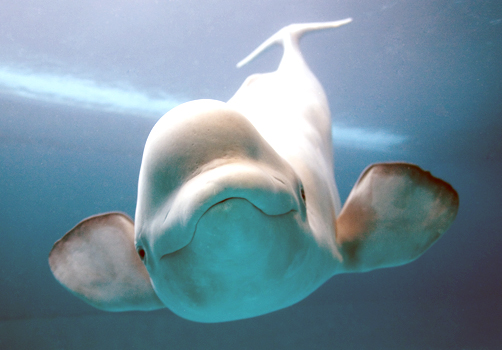

Natural Resources Defense Council
By Taryn Kiekow
National Oceanic and Atmospheric Administration’s (NOAA) Alaska Fisheries Science Center released last week its annual survey of endangered Cook Inlet beluga whales—and the findings don’t bode well for belugas. The 2012 population estimate is 312. According to NOAA, this is a “small, but not scientifically significant increase over last year.”
The 2011 survey estimated 284 whales, while the 2010 survey estimated 340 whales. Watch this video narrated by Pierce Brosnan:
https://youtube.com/watch?v=D6M97HhmVcI%3Frel%3D0
Over the past couple of decades, the number of Cook Inlet beluga whales has plummeted from 1,300 to just 312.
That’s why Natural Resources Defense Council and other environmental groups have been fighting to ensure protection for this iconic species, which is both genetically distinct and geographically isolated to Cook Inlet. In April 2006, we petitioned NOAA to list Cook Inlet belugas as endangered under the Endangered Species Act (ESA). The government finally listed the Cook Inlet beluga whale as endangered in April 2008 and designated more than 3,000 square miles of the Cook Inlet as critical habitat essential to the whales’ survival.
In November 2011, we won a major victory in federal court when the judge upheld the endangered species status of Cook Inlet beluga whales under the ESA.
Despite these protections, the population remains critically endangered. Ship strikes, noise pollution and industrial development consistently threaten the health and habitat of Cook Inlet beluga whales. Oil and gas drilling activities—which use air guns to deploy some of the loudest manmade sounds—are flooding beluga whales with a cacophony of underwater noise pollution.
Which is why we filed a lawsuit earlier this year to challenge a permit that authorizes Apache Alaska Corporation to “take” 30 beluga whales every year incidental to the company’s oil and gas exploration in waters designated as critical for the whales’ survival.
We’re also opposing another proposal—the Pebble Mine—that would require the construction of a new deepwater port, marine terminal and slurry pipelines in designated critical habitat for Cook Inlet beluga whales.
Now, more than ever, beluga whales need our help. Click here to help protect them before time runs out.
Visit EcoWatch’s BIODIVERSITY and ENERGY pages for more related news on this topic.

 233k
233k  41k
41k  Subscribe
Subscribe 